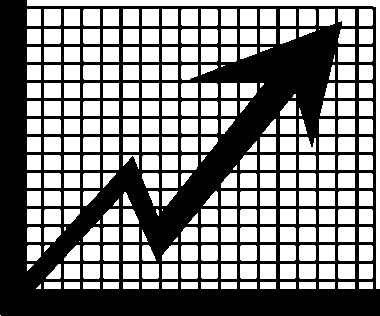Differences Between Stock Exchanges and Over-The-Counter Markets
In the world of finance, understanding the main distinctions between stock exchanges and over-the-counter (OTC) markets is essential for investors. Stock exchanges, like the New York Stock Exchange (NYSE) and the Nasdaq, operate in a centralized manner where securities are bought and sold in a formalized environment. This means that transactions occur on a regulated platform, ensuring transparency and adherence to legal guidelines. On the other hand, OTC markets function as decentralized networks, allowing trading directly between parties without a centralized exchange. This structural difference leads to varying degrees of regulation and oversight. Transparency can be an issue in OTC markets, with prices and volume not always readily accessible, making it crucial for investors to conduct thorough research. Stock exchanges facilitate more liquid trading, which often results in better pricing, whereas OTC trades can sometimes come with increased risk due to the lack of stringent regulations. Therefore, choosing between these two platforms depends largely on individual investment strategies and risk tolerance.
Liquidity and Transparency Considerations
Liquidity is a vital aspect of the trading experience, affecting how easily assets can be bought or sold. Stock exchanges generally provide greater liquidity compared to OTC markets. This is largely due to the presence of more active participants and standardized processes, enhancing the volume of trades that can be executed rapidly. In contrast, OTC markets can experience fluctuations in liquidity, making it challenging for traders to execute large orders without severely affecting the asset’s price. The overall transparency of transactions tends to favor stock exchanges as well; participants have access to up-to-date price quotes and trade information. On OTC markets, information about trades might be less transparent, leading to situations where investors face challenges in assessing true market value. Furthermore, a lack of transparency can introduce greater risk, as parties may not have access to all relevant information regarding an asset’s performance. This disparity highlights the importance of understanding how liquidity and transparency affect each trading environment before engaging in investment activities.
Pricing methods also differ significantly between these two trading avenues. On stock exchanges, prices are determined in real time through a competitive matching process, ensuring fair marketpriced transactions. This system allows for rapid price adjustments in response to supply and demand. Conversely, OTC pricing is often negotiable, meaning that the parties involved in a trade may agree to a price outside the standard market values. This flexibility can lead to better deals, but it can also create discrepancies in pricing when compared to exchanges’ real-time measures. Such variability means that investors should approach OTC trades with caution, as they may not always reflect intrinsic value accurately. Another factor to consider is the type of securities traded; stock exchanges tend to have stricter standards regarding the companies and securities listed, while OTC markets may accommodate smaller, less regulated entities. As a result, thorough research and due diligence become paramount in ensuring sound investment decisions regardless of trading platform selection.
Regulation and Oversight
Regulatory differences between stock exchanges and OTC markets also play a significant role in their operations. Stock exchanges are heavily regulated by government entities such as the Securities and Exchange Commission (SEC) in the United States. These regulations aim to safeguard the interests of investors and maintain orderly trading environments. Such oversight includes ensuring that companies provide timely financial disclosures, adhere to listing requirements, and follow trading regulations. On the other hand, OTC markets lack the same level of supervision, leading to potential complications for investors. This lower regulatory framework can expose participants to higher risks, including fraud and market manipulation. As a result, it is crucial for traders to familiarize themselves with the particular securities they are considering in OTC markets. Investors may need to rely more on their discretion and expertise than they would in a regulated stock exchange environment. In conclusion, the regulatory distinctions can significantly influence the decision-making process for investors, highlighting the importance of knowing the environment in which one is trading.
Market participants also vary between stock exchanges and OTC markets. Stock exchanges primarily facilitate trading for institutional investors, retail investors, and brokerage firms, leading to a mix of diverse trading strategies. This diversity can create more robust price discovery and market sentiment. On the contrary, OTC markets often attract smaller, less institutionalized participants, including individual investors negotiating directly among themselves. This difference in participant composition can affect market dynamics, influencing how quickly securities can be bought or sold. Additionally, many larger companies prefer stock exchanges for their public listings due to the prestige and visibility these platforms provide. OTC trading can be attractive for smaller companies seeking to avoid the hefty costs associated with exchange listings. However, participating in the OTC market may limit exposure to significant investor interest, which can impact long-term growth potential. Investors should also consider their goals when selecting a trading environment, as the participant landscape can dramatically influence trading success and strategy execution.
Types of Instruments Traded
The variety of financial instruments available also differentiates stock exchanges from OTC markets. Stock exchanges typically list enormous ranges including stocks, exchange-traded funds (ETFs), and options, which tend to be standardized and accessible. This standardization enables easier trading and greater liquidity for instrument classes. In contrast, OTC markets allow for a broader array of financial products, including derivatives, bonds, and even currencies that may not meet the requirements for exchange listing. This flexibility can benefit certain investors looking for unique investment opportunities. However, the broader selection comes with increased complexity. Investors must navigate distinct risk factors and limited information availability associated with trading these instruments. Additionally, evaporating liquidity can become a concern due to less trading volume in OTC markets, which could hinder the ability to trade promptly at desirable prices. Therefore, investors should ensure a thorough understanding of both the instruments and respective markets before making investment choices that align with their objectives.
Ultimately, the differences between stock exchanges and OTC markets can shape an investor’s trading experience in significant ways. Each environment presents unique advantages and challenges that appeal to different trading objectives and risk tolerances. Investors should carefully evaluate their strategies when deciding between these two platforms, considering aspects like liquidity, pricing mechanisms, regulatory oversight, and available instruments. It’s important to recognize the need for diligent research and due diligence, particularly when trading in the OTC markets. Overall, understanding these key differences will empower investors to make well-informed trading decisions, whether pursuing long-term investment growth or short-term gains. In conclusion, knowing where to trade will influence not only potential returns but also the overall risk profile of investment endeavors. As financial markets continue to evolve, monitoring changes between stock exchanges and OTC markets will remain essential for staying competitive and maximizing investment strategies.





